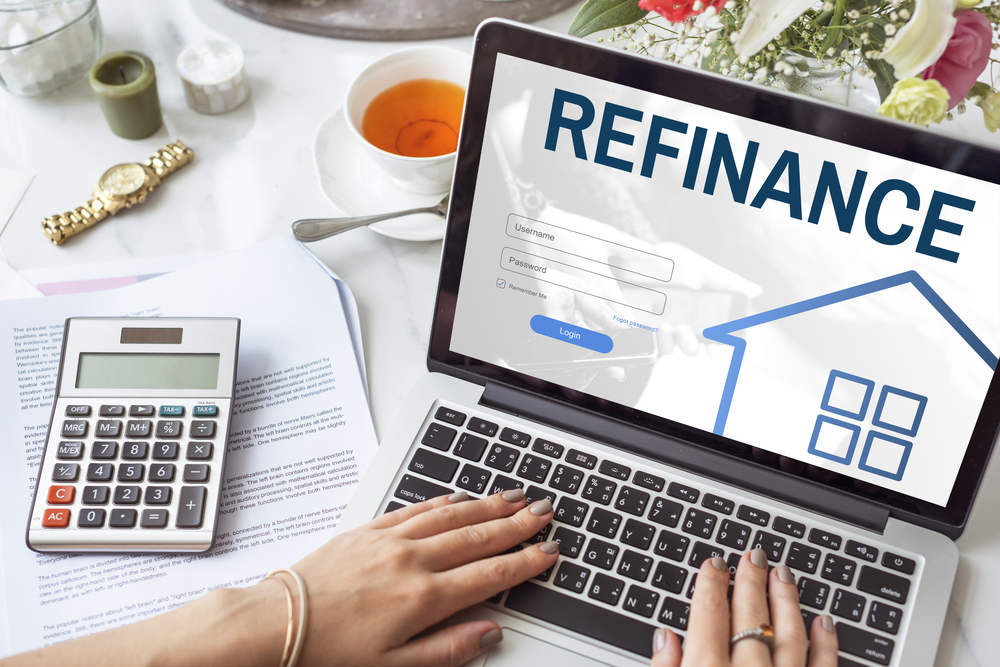
Homeowners typically only consider refinancing when interest rates decrease, but there are additional indicators that suggest they should consider it. Failing to consider these clues can result in thousands of dollars in extra costs over the life of a loan. The process of refinancing enables homeowners to achieve lower monthly payments and shorter loan terms, while also accessing available funds for various financial objectives. People often overlook the subtle signs that indicate their current loan does not align with their current financial situation. Mortgage refinancing timing knowledge enables you to manage rising costs and shifting financial needs.
1. Your Credit Score Has Improved Significantly
A higher credit score typically means access to more favorable interest rates. If your score has climbed since you first bought your home, you might qualify for a lower rate when you refinance your mortgage. Even a small rate reduction can translate into major savings over time. Lenders reward borrowers with strong credit histories, so it’s worth checking where you stand now compared to when you closed your original loan.
You can review your credit report for free through AnnualCreditReport.com to see how far you’ve come. If your financial habits have improved—timely payments, lower debt, fewer credit inquiries—you could be in a prime position to refinance without changing your homeownership plans.
2. Your Income Has Stabilized or Grown
If you’ve recently landed a steady job or your income has increased, refinancing could strengthen your long-term financial position. Lenders look favorably on consistent income, especially if you had variable earnings when you first applied for your mortgage. Refinancing now could help you secure a better rate or transition from an adjustable-rate mortgage to a fixed-rate loan, offering more predictable payments.
When you refinance your mortgage under improved income conditions, you may also qualify for shorter loan terms. That means paying off your home faster and saving thousands in interest. The trade-off might be a slightly higher monthly payment, but the overall benefit can be substantial.
3. You Have High-Interest Debt to Consolidate
Carrying credit card balances or personal loans at double-digit interest rates can drain your budget. Refinancing your mortgage and using some of your home’s equity to pay off that debt could simplify your finances. The new loan might roll multiple payments into one, often at a much lower interest rate.
This strategy works best if you commit to avoiding new debt afterward. By refinancing, you can reduce monthly stress and free up cash flow for savings or investments. It’s a practical move if your home’s value has risen and you want to put that equity to work responsibly.
4. Your Adjustable-Rate Mortgage Is Nearing a Reset
An adjustable-rate mortgage (ARM) can start with a low introductory rate but later rise sharply. If your ARM is approaching its adjustment period, it might be time to refinance your mortgage into a fixed-rate loan. Doing so can protect you from future rate hikes and give you consistent monthly payments.
Many homeowners wait until the last minute and end up paying more than necessary. Refinancing before the reset date can help you secure a stable rate while market conditions are still favorable. Predictability often brings peace of mind, especially if you’re budgeting for other long-term goals.
5. You Plan to Stay in Your Home for Several More Years
Refinancing involves closing costs, so the timing matters. If you plan to stay in your home long enough to break even on those costs, refinancing can make strong financial sense. The “break-even point” is when your monthly savings from the new loan outweigh the upfront expenses.
For example, if refinancing saves you $200 a month and closing costs are $4,800, you’d break even in two years. Staying beyond that point means real savings. Homeowners with stable living situations often benefit most from refinancing because they can fully capture the long-term rewards.
6. Home Values in Your Area Have Increased
Rising property values can shift your loan-to-value ratio, which affects the rate and terms you qualify for. If your neighborhood has appreciated, you may have more equity than you realize. Refinancing can help you eliminate private mortgage insurance or qualify for better terms altogether.
Check local market trends using resources like Zillow’s home value tools. A higher home value strengthens your financial leverage, allowing you to refinance your mortgage on terms that reflect your improved equity position. That can make a noticeable difference in your monthly obligations.
7. You Want to Fund Major Life Changes
Sometimes refinancing isn’t just about saving money—it’s about adjusting to new priorities. Maybe you want to start a business, pay for education, or renovate your home. A cash-out refinance can provide funds for these goals while keeping your borrowing costs manageable.
When you refinance your mortgage for life changes, you’re essentially restructuring your biggest financial commitment to support new opportunities. The key is to ensure the new loan aligns with your risk tolerance and timeline. Used wisely, refinancing can create flexibility without adding unnecessary strain.
Reading the Subtle Signals
Homeowners choose to refinance their mortgages when they observe direct evidence of declining interest rates. The true value becomes apparent through observing three key indicators of financial growth: better credit scores, rising income, and growing property value. The right time to refinance your mortgage allows you to align your home loan with your current needs rather than your past circumstances.
Have you noticed these warning signs in your financial situation? What prevents you from exploring a refinance opportunity at this time?
What to Read Next…
- 6 Mortgage Clauses That Get Enforced When You Least Expect It
- How a Reverse Mortgage Can Derail a Family’s Entire Financial Plan
- What Are Banks Really Doing With Your Personal Spending Data?
- 7 Hidden Fees That Aren’t Labeled As Fees At All
- 7 Financial Loopholes That Lenders Exploit Behind The Scenes
The post 7 Hidden Signs You Should Refinance Your Mortgage Right Now appeared first on The Free Financial Advisor.







